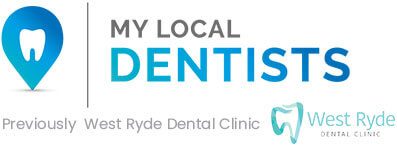 After the difficulties of teething, your baby’s first tooth is an important milestone.
After the difficulties of teething, your baby’s first tooth is an important milestone.
So if a dark spot shows up on one of your baby’s teeth, it is bound to cause worry.
Chalky or dark spots on a baby’s teeth may be baby bottle tooth decay, a threat to dental health for infancy and beyond.
What is this condition and how does it relate to bottle-feeding? Is it dangerous? And most importantly, how can you prevent it?
At My Local Dentists West Ryde we’d like to take a moment to share our knowledge of baby bottle tooth decay with parents and caregivers. Learning about baby bottle tooth rot, how to identify it, and how to avoid it, is key in ensuring the oral and general health of your beloved baby!
What Is Bottle Rot?
Baby bottle tooth decay is decay of the baby teeth of infants and young children resulting from long-lasting and/or frequent bottle feedings. It is caused by exposure of an infant’s teeth to sugary liquids.
Among these sugary liquids are milk, infant formula, soda, juices, and other sweet drinks. During prolonged bottle feeding sugar collects around an infant’s teeth and gums, feeding bacteria that emit acids that attack teeth, leading to decay.
Baby bottle tooth decay is also associated with breastfed infants who feed for prolonged periods and with children whose pacifiers are dipped in sweetening liquids.
Tooth decay can even begin when a caregiver passes cavity-causing bacteria to an infant. Oral bacteria can be transmitted through saliva, and this can take place with something as simple a sharing a spoon or licking a pacifier clean.
Why Is Bottle Rot Bad For Temporary Teeth?
Even though baby teeth are temporary, they have long-term effects on your dental health.
Baby teeth act as placeholders for permanent teeth. While permanent teeth will emerge, how and where they do has a lot to do with your child’s baby teeth. Each baby tooth holds a spot for a permanent tooth. The loss of a baby tooth can cause shifting and result in harmful misalignments. Aesthetic issues aside, poorly aligned teeth can make brushing and flossing harder, result in crowded and/or impacted teeth, and contribute to jaw disorders including TMJ.
Good health and nutrition: If children cannot chew food properly, they may suffer from poor nutrition. If cavities develop, the risk of infection goes up and the infection can spread into the body and even reach the brain.
Maintaining healthy baby teeth helps to build good dental habits: Teaching good oral hygiene habits can have a profound impact on your child’s dental and overall health. Introducing good dental habits early, including visits to the dental office, can instill the importance of preventative dental care in a child.
Esteem and confidence. Attractive teeth lead to good self-esteem and confidence. Missing, discoloured, or misaligned teeth can result in lower self-esteem for your child.
Signs Of Early Childhood Tooth Decay
Early childhood caries take time to develop and can be difficult to detect in early stages.
Tooth decay may show up sequentially as:
- A dull white band on the tooth surface closest to the gum line. This first sign often remains undetected by parents
- A yellow, brown or black band on the tooth surface closest to the gum line that indicates the progression to decay
- Teeth that look like brownish-black stumps indicating that advanced decay is present.
Avoiding Bottle Rot
Here are some ways to guard your child from baby bottle tooth decay:
- Don’t give an infant soda, juice, or sugar water in a bottle.
- Don’t dip pacifiers in sweeteners.
- Teach your child to drink from a cup as soon as they are physically able. Some parents use a sippy cup as a stepping-stone between a bottle and a real cup).
- Your infant should not have unlimited access to drinks (excepting water) throughout the day.
- Be wary of juices and artificial “fruit drinks” that can be even sweeter than fruit juice. Some parents dilute juice with water to reduce the amount of sugar.
- Even before teeth are present, gently clean your child’s gums with a damp cloth after every meal. Brush older children’s teeth twice daily with a soft, wet toothbrush and pea-sized amount of toothpaste if a child is older than 2.
Baby teeth aren’t meant to last forever, but they still require care. By taking steps to prevent baby bottle tooth decay, you’ll give your child a good start on a lifetime of healthy teeth.
My Local Dentists West Ryde Advantage
At My Local Dentists West Ryde, our treatments and service are 100% personalized to you and your needs. Our dentists are highly motivated and accredited practitioners with graduate degrees from the University of Sydney.
As well as our dentists, the supporting staff at My Local Dentists West Ryde are extremely dedicated and experienced to guarantee that each visit with us is as comfortable as possible.
Child Dental Benefits Schedule
Bulk Bill for children who are eligible for MEDICARE CHILD DENTAL BENEFIT SCHEDULE
Up to $1000 worth of dental treatments over two years
Learn more about Child Dental Benefits Schedule
Call your West Ryde dentist on (02) 9809 7000 or visit us at Shop 20 West Ryde Marketplace 14 Anthony Road in West Ryde.
